The Reactor 290 Alloy Pro is Nukeproof’s take on the shorter-travel trail bike, but instead of going lightweight and svelte, Nukeproof ensures you’re backed up with plenty of burly kit so you’ll get down the hill as fast as a 130mm bike is capable of doing.
This means plenty of grunt in the tyres department, and suspension products that wouldn’t be out of place on a full-bore enduro bike – though perhaps with a touch more travel.
A contender for our 2022 Trail Bike of the Year award, it’s a bike that feels well placed in Nukeproof’s line-up. The Scout takes control when you don’t want rear squish, and the Mega and Giga are there for when things get really rough – or really, really rough.
Nukeproof Reactor 290 Alloy Pro frame and suspension
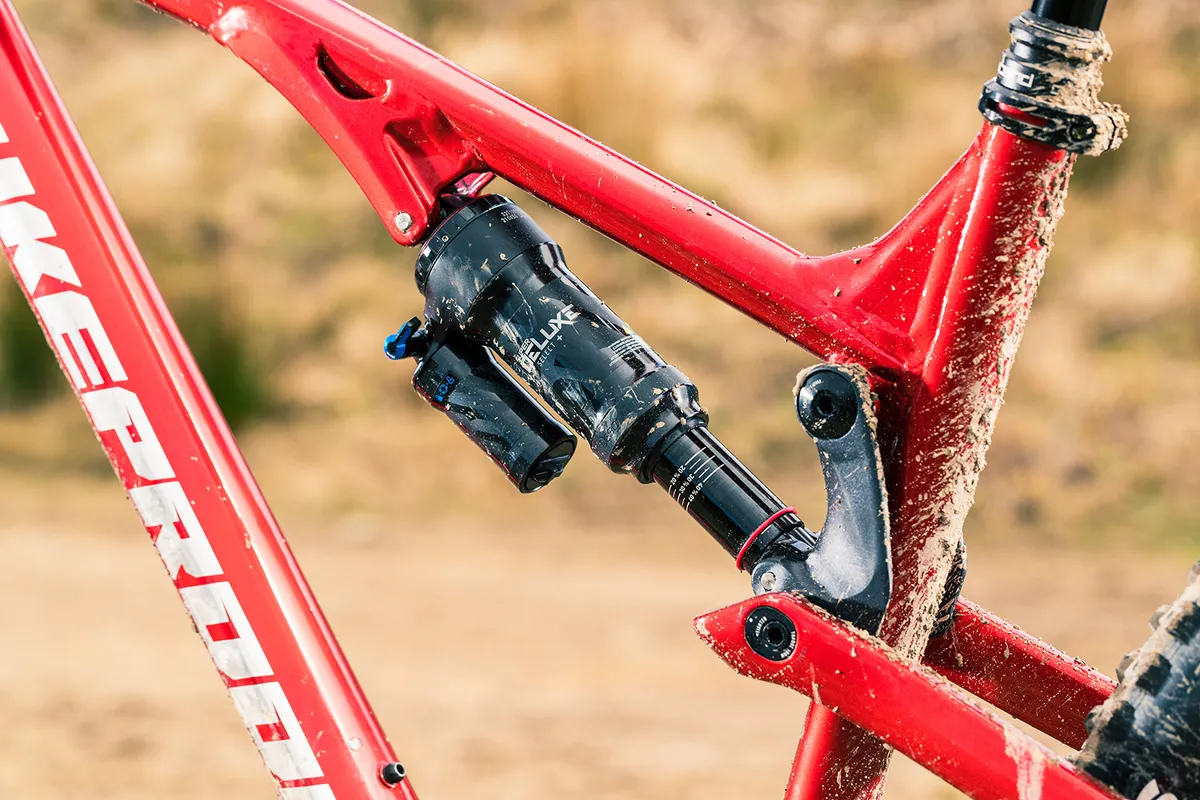
As the name suggests, aluminium is used to build this version of the bike, though carbon variants are also on offer for a bit more cash, and they all share a carbon seatstay.
The 130mm of suspension is dealt out by a 4-bar linkage, with a pivot sitting at the end of the chainstay. This gives Nukeproof more control over the rear-axle path and how it interacts with pedal inputs when compared to a single-pivot bike.
Nukeproof says it has increased the anti-squat figures for the lower gears, so the suspension shouldn’t soak up quite as much pedalling energy, while it then drops off in higher gears, more commonly used when descending. Here, the suspension should be more free to move.
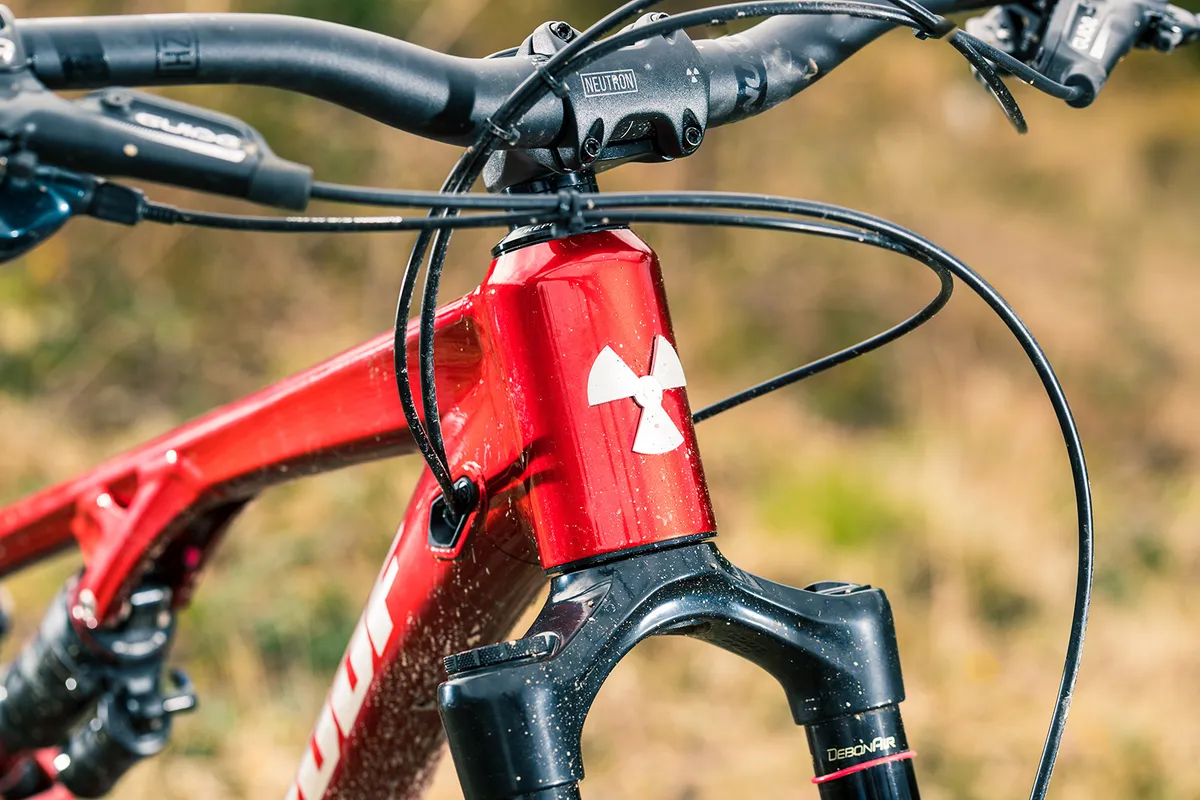
It’s also said to be nice and progressive, with suppleness early in the stroke before ramping up for bigger hits, improving control.
The frame has internal cable routing at the front, while at the rear cables run externally. The horizontally mounted shock leaves room for a bottle underneath it, with a single set of bosses on the down tube.
Underneath the down tube is a patch of rubber protection, while ISCG05 mounts around the bottom bracket allow for a chainguide or bash guard to be fitted.
Nukeproof Reactor 290 Alloy Pro geometry
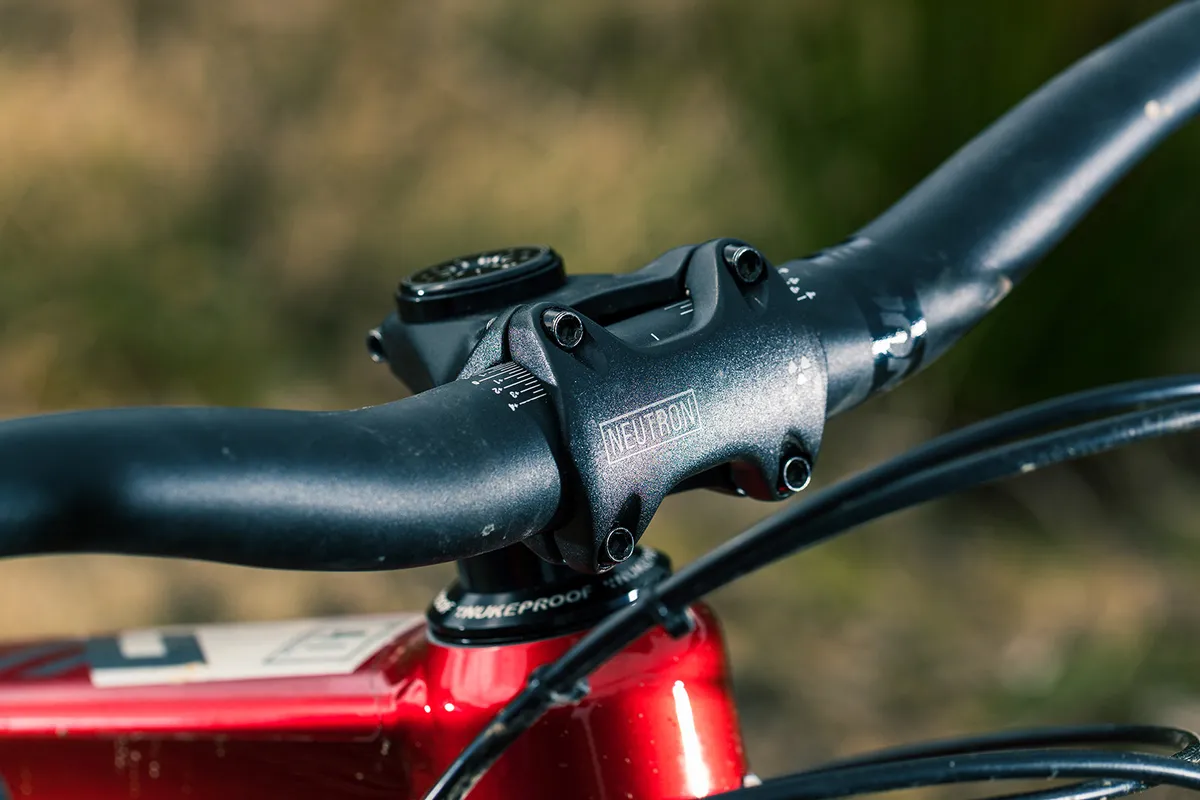
The geometry of the bike is contemporary, with all the trappings of the cliched long-low-slack design principal.
Sizing is only offered from medium to extra-large, but the 420mm seat tube on the medium should (or at least could) mean shorter riders can fit on a bike.
My size-large test bike has a long reach of 480mm, though the 458mm seat tube is pretty average in length. This shouldn’t compromise fit, though you might struggle to fit one of the newest-generation 200mm droppers.
The head angle is slack for a trail bike at 65.3 degrees (measured), though the claimed seat angle of 75 degrees is slack too (I measured mine, with a 71cm saddle height, at 75.2 degrees).
These figures are for the low setting, because Nukeproof has added a geometry flip chip to the bike, which steepens the angles by 0.5 degrees in ‘Trail’ mode, versus ‘Rail’ mode. For context, I tested the bike mostly in this lower Rail mode.
| | M | L | XL |
|---|---|---|---|
| Seat angle (degrees) | 75 | 75 | 75 |
| Head angle (degrees) | 65.5 | 65.5 | 65.5 |
| Chainstay (mm) | 440 | 440 | 440 |
| Seat tube (mm) | 420 | 458 | 508 |
| Top tube (mm) | 610 | 640 | 675 |
| Bottom bracket height (mm) | 330 | 330 | 330 |
| Wheelbase (mm) | 1,205 | 1,235 | 1,271 |
| Standover (mm) | 728 | 735 | 741 |
| Stack (mm) | 615 | 620 | 625 |
| Reach (mm) | 451 | 480 | 514 |
Nukeproof Reactor 290 Alloy Pro specifications
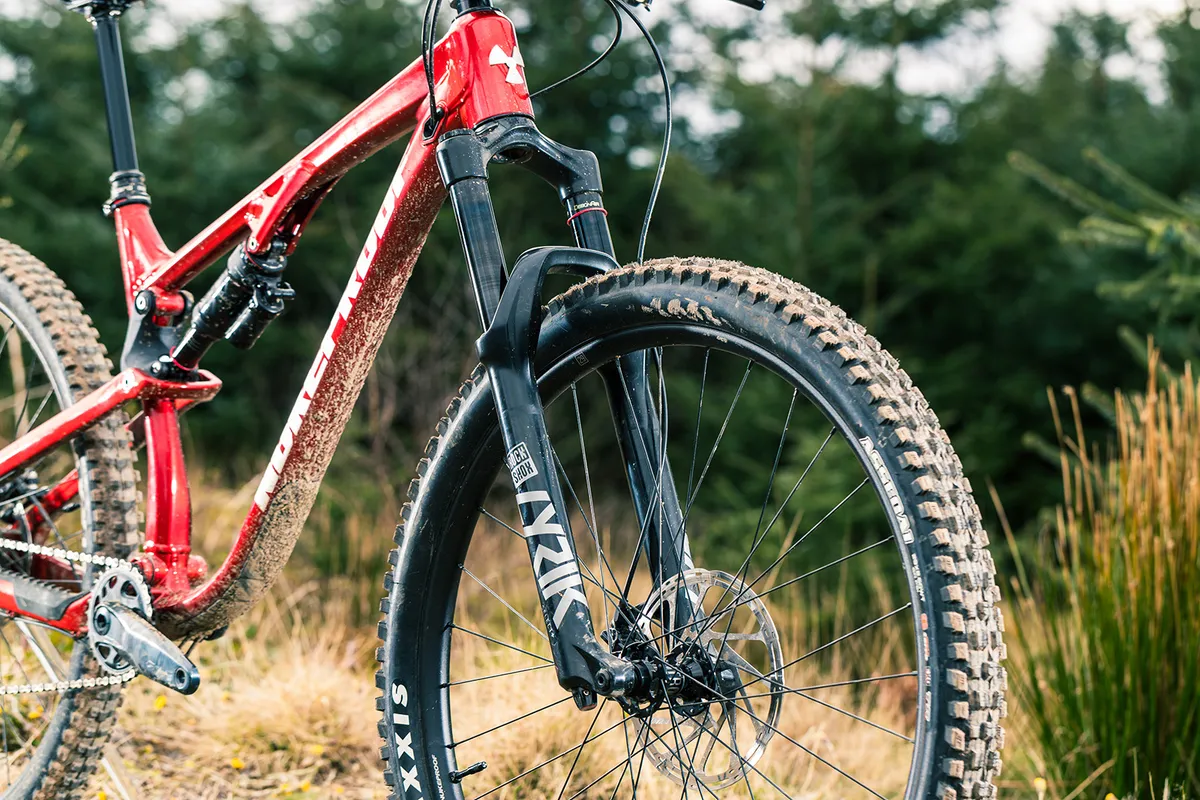
SRAM and Nukeproof supply the bulk of the components on this build of the Reactor.
A 150mm RockShox Lyrik Select+ sits at the front of the bike, with a Charger 2 damper in the right-hand leg.
This is paired with a Super Deluxe Select+ shock controlling the rear wheel. The addition of the piggyback cartridge increases oil volume in the shock, meaning improved consistency on long, rough, hot descents.
The SRAM package continues with a GX Eagle drivetrain and Guide RE brakes. These are moderately old in the grand scheme of things, using a Guide lever (predecessor to the current G2 brake), and a previous-generation Code caliper.
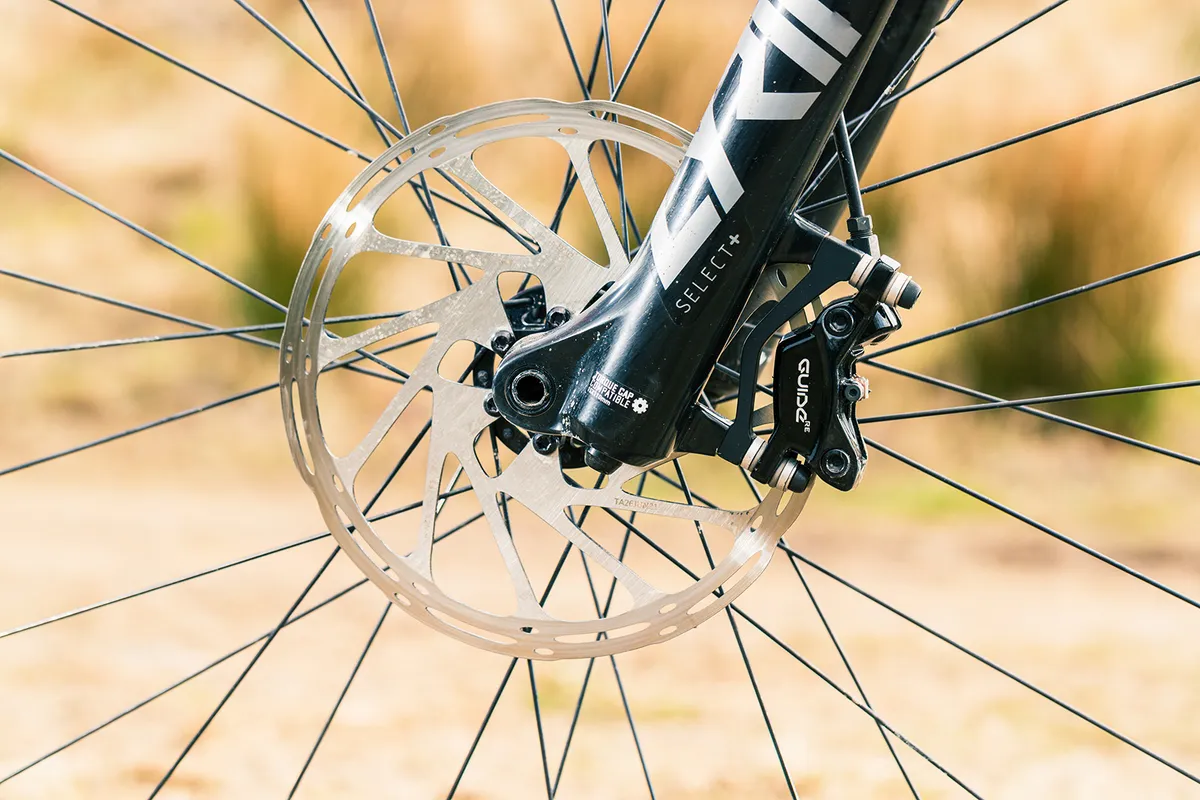
However, they’re incredibly well-regarded pocket-friendly brakes, with plenty of power and decent modulation, so I’ve no issues seeing them here.
Nukeproof’s Neutron V2 wheels have a snappy pickup hub and broad rims, which hold a pair of Maxxis tyres – an Assegai at the front and a Dissector at the rear.
Both are triple-compound tyres, with the MaxxTerra rubber and EXO+ casing – lighter than the DoubleDown casing but tougher than standard EXO carcasses that we see on plenty of trail bikes.
Nukeproof Reactor 290 Alloy Pro ride impressions
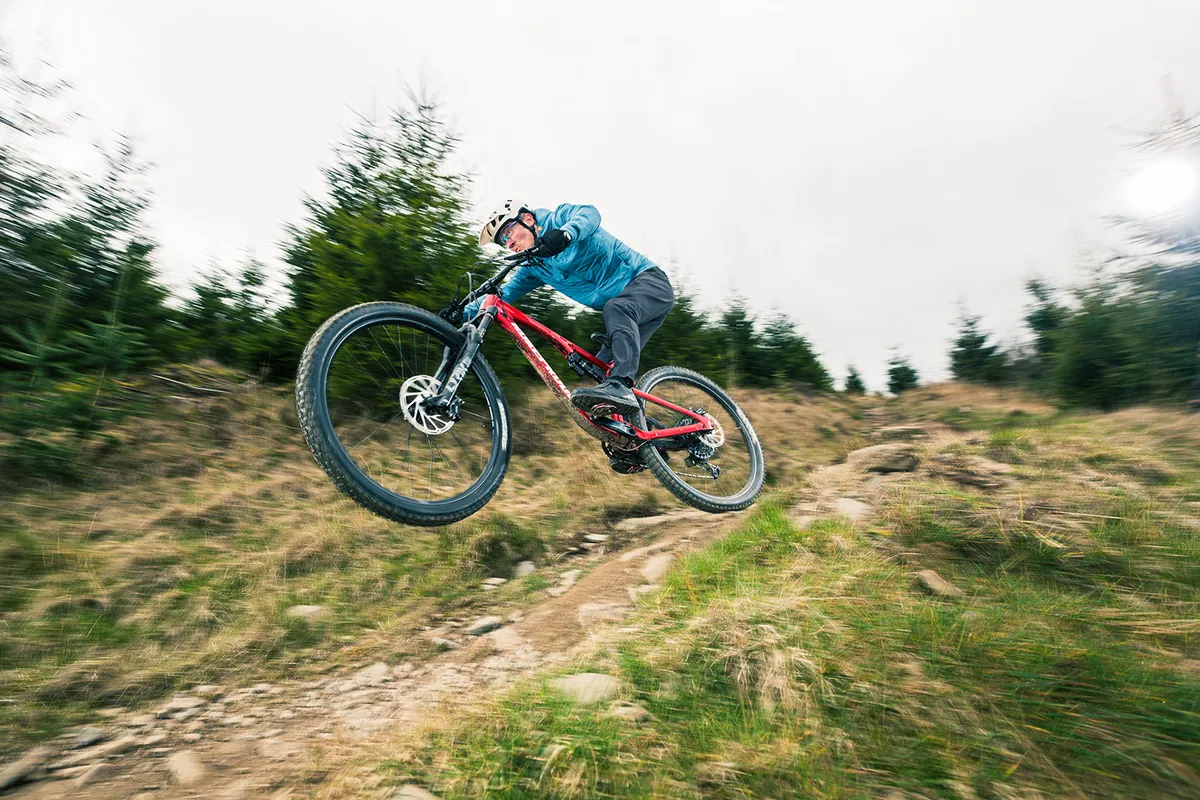
This bike was tested as part of our 2022 Trail Bike of the Year test. It was pitted against seven other bikes, with travel ranging from 120 to 140mm at the rear, and priced from £3,299 to £3,999.99.
The bikes were tested all over the UK, from long, steep tracks in South Wales to our regular testing loops in the Forest of Dean, fast rocky tracks in the Tweed Valley and the fresh-cut loam and rocky outcrops of the Cairngorm National Park.
Bikes were tested back to back, with short repeated loops ensuring differences were noticed easily. An extensive programme of workshop weighing, measuring and general poking about made sure that every little detail was explored.
Nukeproof Reactor 29 Alloy Pro climbing performance
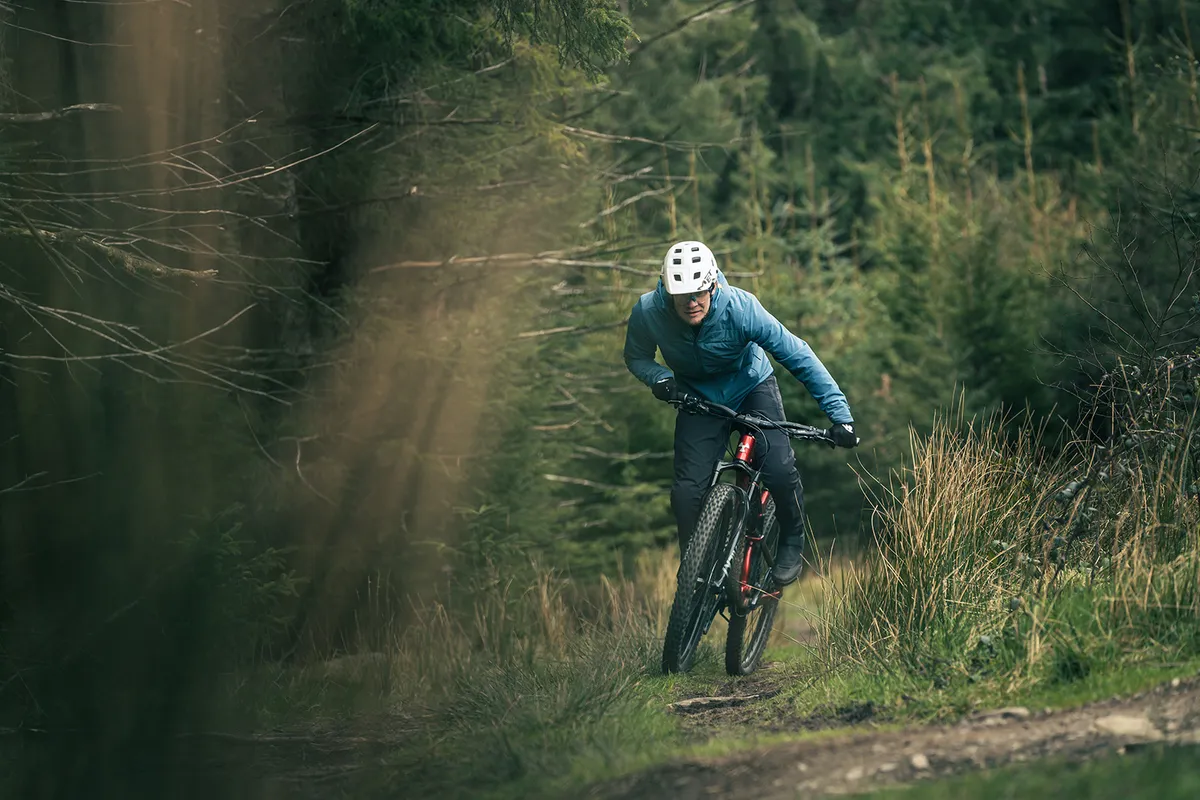
The Reactor has a ridiculously smooth-feeling rear end, with plenty of early-stroke sensitivity boosting grip in virtually every circumstance.
All this smoothness comes at a cost, though. Despite Nukeproof claiming that the kinematics have been improved to aid pedalling stability in lower gears, its high overall weight and supple suspension contributes to the Reactor feeling like hard work up the hills.
Pedal inputs result in small but consistent compressions of the shock, whether you mash on the pedals or spin in perfect circles.
On smooth surfaces, I often reached for the shock’s lockout lever – this is fine on tarmac and fire roads, but on lumpy yet achievable singletrack climbs, a bit of rear squish really helps the bike climb. Therefore, there’s a compromise to be made between traction and comfort, and pedalling efficiency.
Certainly, this isn’t a bike I often stood up on the pedals and sprinted up hill on.
As such, long days in the saddle feel that little bit longer, tiring the legs more so than faster-rolling, more efficient platforms.
Furthermore, unless you push and pull the bike aggressively through rolling terrain to generate speed while pumping, it feels sluggish.
The support in the suspension is there to generate speed off the back of a rise, but you have to push deep into the travel to find it – assuming you’ve set the sag at around 28 to 30 per cent to make the most of the supple suspension on the descents.
If you accept that you’ll be sitting and spinning, rather than trying to set any PRs, the Reactor will get up steep technical climbs.
The Dissector balances a moderately aggressive tread with one that doesn’t sound like a tractor on tarmac, and while the 75-degree seat angle isn’t steep, on a gradual fire-road gradient, it’s not uncomfortable. A steeper seat angle would be appreciated on steeper singletrack climbs, though.
Nukeproof Reactor 29 Alloy Pro descending performance
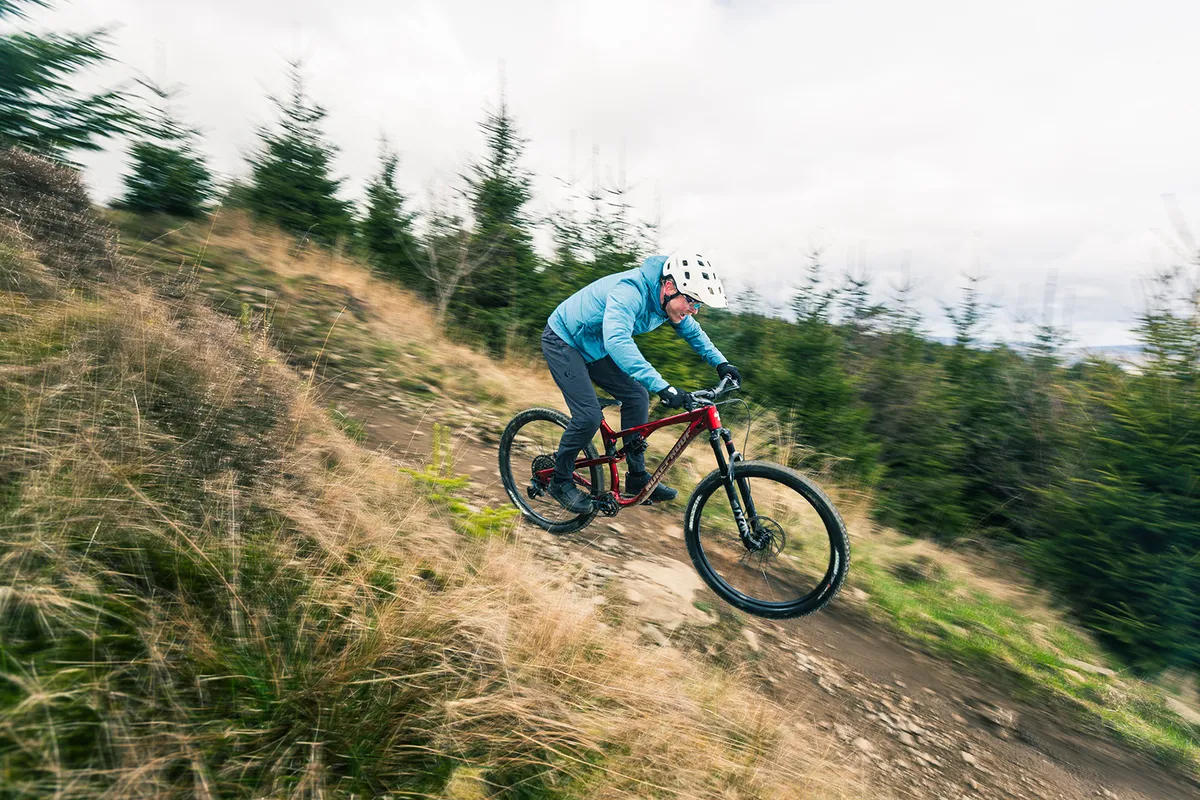
The Reactor disguises modest travel numbers with a plush back end and, cliché alert, an almost bottomless feel to its rear suspension – until you really slam it into a harsh landing, of course.
This leads to the bike being absolutely planted to the floor over choppy terrain, helping the Dissector grapple with every ounce of grip available, and keeping your feet comfortably connected to your pedals.
What this means is absolute confidence on the roughest of tracks, whether its chunky rock gardens or a spider’s web of fist-deep roots splaying from a broad trunk.
The rear wheel soaks it all up, without preventing you from holding speed, pumping through to generate more pace, or hauling on the stoppers.
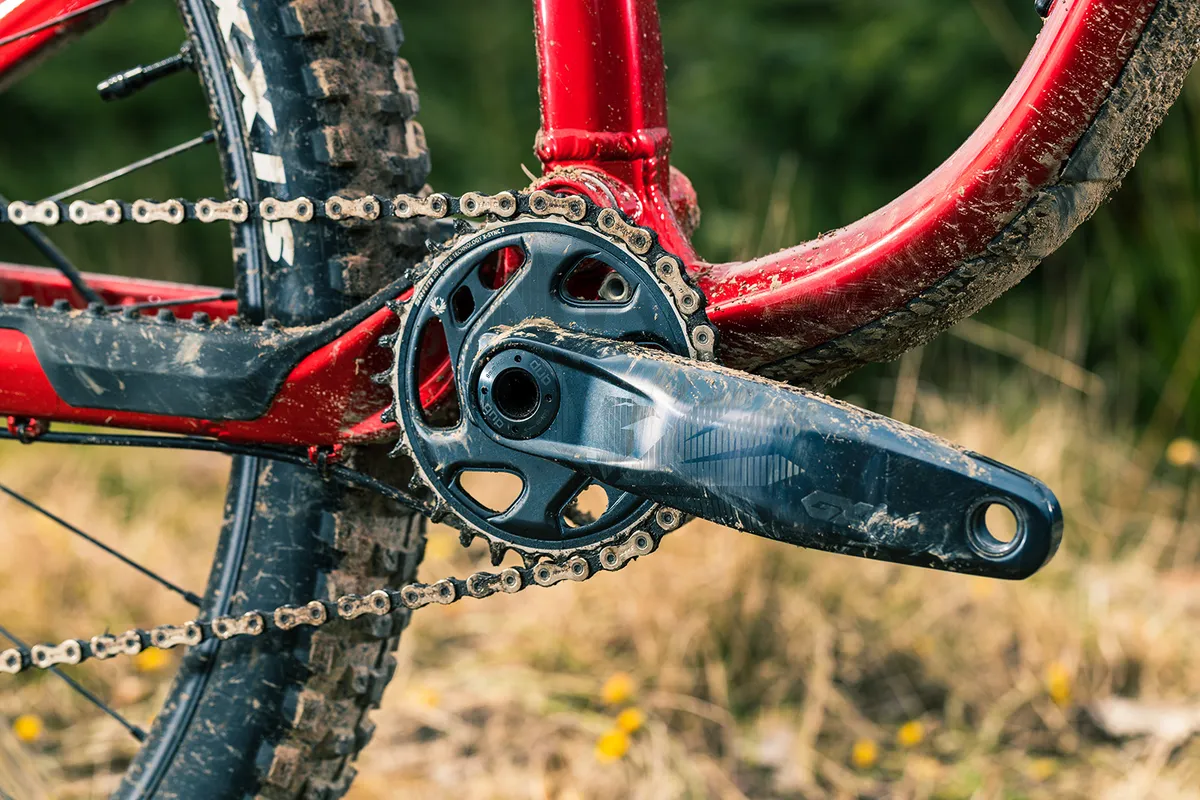
Small-bump sensitivity is excellent, too, helping keep the bike calm as it traverses rocks inset in the trail, and boosting grip levels when you need to scrub some speed.
Under braking, the suspension feels as though it remains active, without pitching too far forward or stiffening up when the rear rotor is clamped within the caliper.
Hit something big or with little finesse, and the Reactor will use up all of its 130mm of travel. Rarely could I get the bike to truly bang off the shock’s bumpstops, though, but the nature of the bike encourages you to really hammer it in areas where a 130mm-travel bike shouldn’t be.
This is all helped by the 150mm-travel Lyrik Select+ up front. Its bulked-up chassis and smooth-feeling internals give it an authoritative feel, encouraging you to aim the 2.5in-wide Maxxis Assegai at the furthest point you can see, and just let go of the brakes.
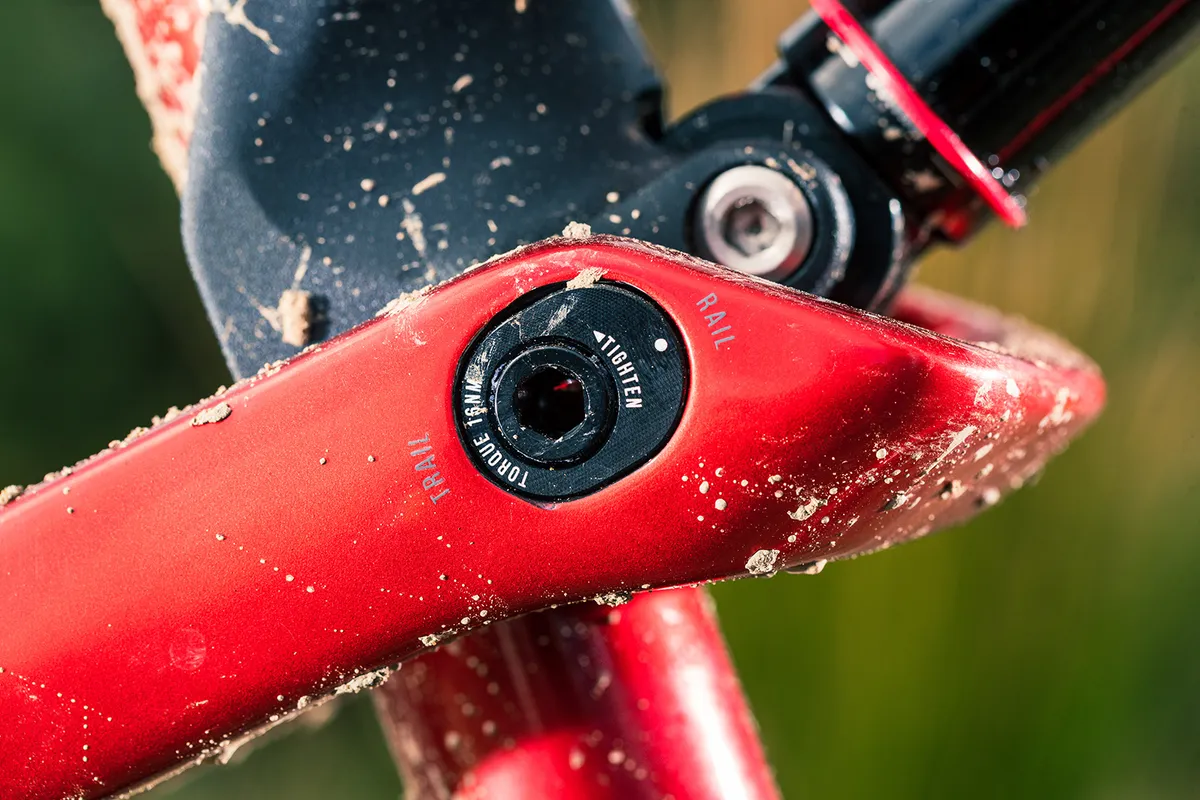
Despite having the same damper on paper as the Canyon Spectral 125 CF7 and Kona Process 134 DL, which feature a Pike fork, the Lyrik on this Nukeproof felt much better on the trail.
While all the forks display good support and control later into the stroke, the Lyrik felt as though it had better small-bump sensitivity, and thus hand pain was reduced.
With front and rear suspension smoothing the way, it’s up to the brakes to keep you in ultimate control.
The Guide RE might be long in the tooth, but the combination of a Guide lever and previous-generation Code caliper just seem to keep on giving, with buckets of power regardless of the situation, combined with a really positive bite that’s almost akin to Shimano’s relatively digital on/off feel. I love this instant delivery of power.
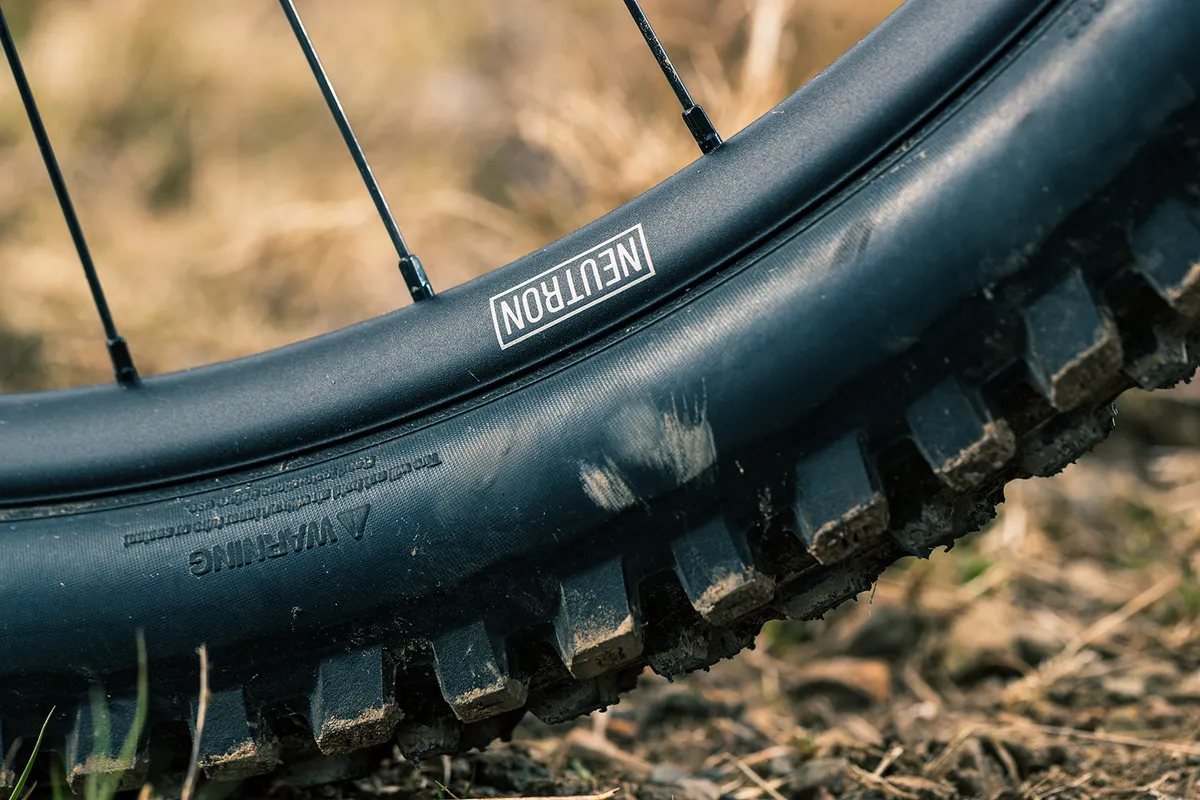
They might be a ‘cheap’ option, but if this is Nukeproof’s way of saving cash, I’m all for it.
The Reactor definitely suits the steeper tracks, though. On more mellow terrain, compared to other bikes shortlisted for our Trail Bike of the Year award, the Reactor is less reactive to pedal inputs and body-weight shifts.
It appears lazy on flatter tracks, and takes work to generate speed through rolling terrain and gentle corners.
The 65-degree head angle (in the lower setting) is fairly slack, but not ridiculously so. It’s just the overall suppleness of the suspension robbing those subtle movements that create rhythm and flow in mellow terrain.
As such, it’s not a bike I’d recommend for riders looking to cruise their everyday trails.
Outside of the brakes and fork, it’s great to see Nukeproof putting EXO+ tyres on the Reactor, front and rear.
Yes, they add to the drag, but they’re better damped than the EXO tyres found elsewhere, and give much more confidence when rattling through rocks and roots, because their thicker carcass is less puncture-prone.
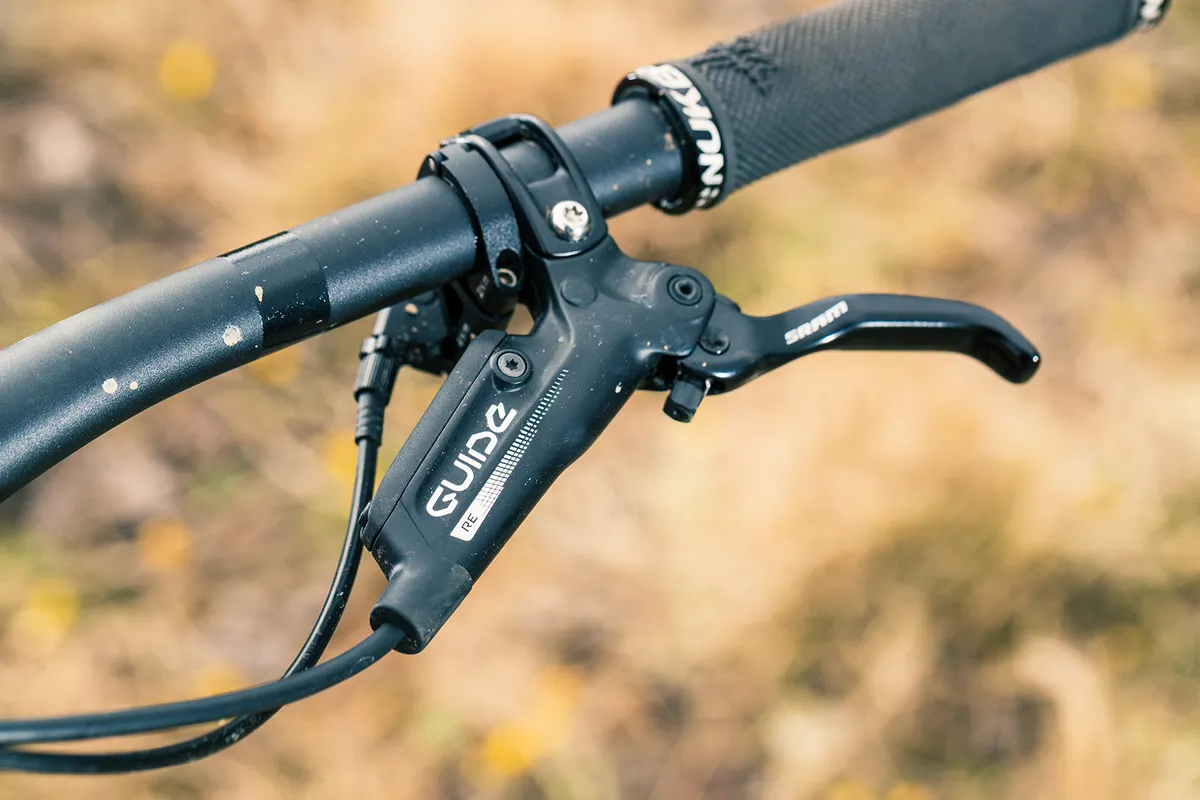
The Nukeproof finishing kit all felt good, too. The Neutron wheels have broad rims and a pretty quick pickup from the rear hub.
I liked the Sam Hill Signature grips (though they’re a personal thing), and the Horizon saddle.
How does the Nukeproof Reactor 290 Alloy Pro compare to the Kona Process 134 DL and Vitus Escarpe 29 CRX?
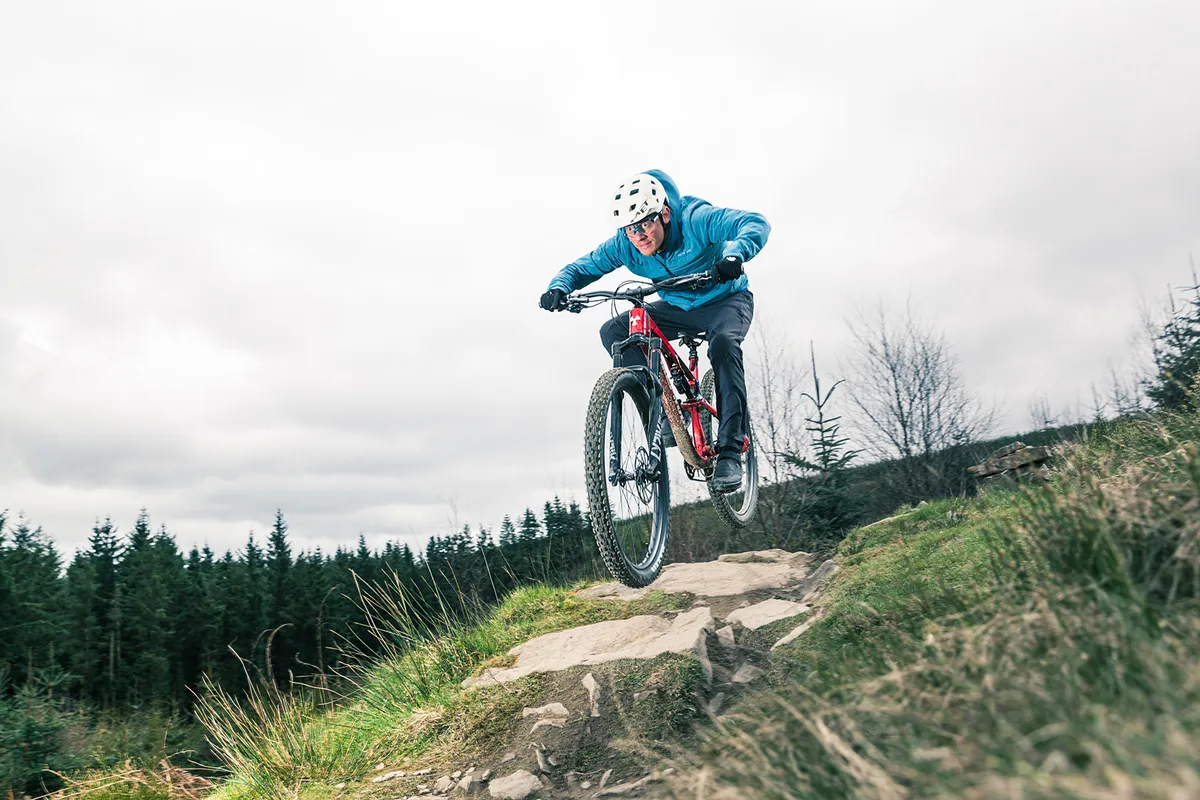
In the context of Trail Bike of the Year, the natural competitors are the Kona Process 134 and the Vitus Escarpe, because all three bikes give the air of being mini-enduro bikes, with supple suspension and burly components.
The Vitus climbs better than both other bikes, with less pedal bob and faster rolling speeds. It sits a touch higher in its travel and lets you get away with more energetic pedalling before you end up reaching for the lockout. Of these three bikes, it’d be the one I’d choose for a longer day out in the hills.
However, the Nukeproof is the plushest on the descents, followed by the Kona and then the Vitus.
Both the Kona and Nukeproof seem to deal with harsher hits a touch better, feeling more progressive towards the end of their stroke.
The Nukeproof’s piggyback Super Deluxe shock is almost always going to feel better than the smaller-volume Fox DPX shock on the Vitus or the single-can Deluxe on the Kona, as well as remaining consistent for longer on prolonged, hot descents.
Nukeproof Reactor 290 Alloy Pro bottom line
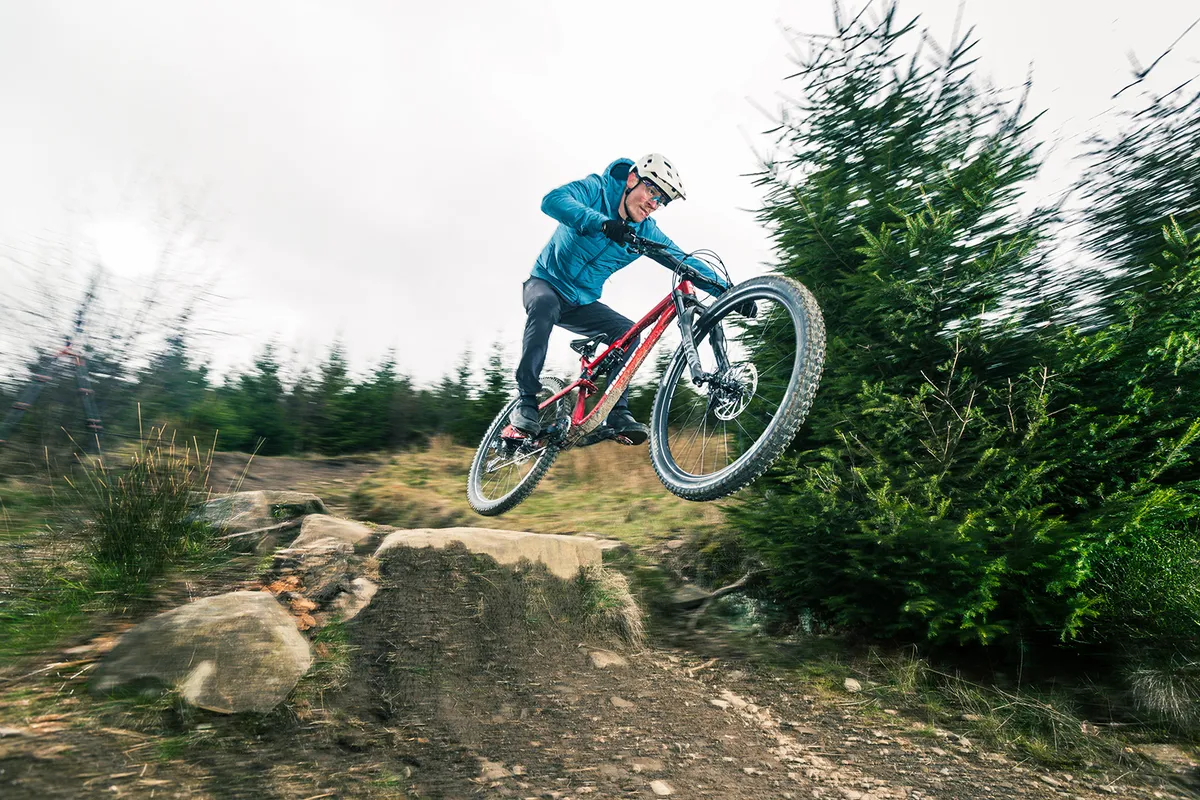
During weekdays in the Trail Bike of the Year process, I’m contractually obliged (woe is me!) to ride all the bikes in the test, to find out their pros and cons, where they work well and where they don’t.
At weekends, work does not (often) dictate my choice of ride.
It’s testament to the Reactor’s capabilities, then, that I often picked it out of the garage when heading to the hills with mates at weekends.
It wouldn’t accompany me everywhere, or on every ride, but given most of my free time is spent on winch-and-plummet type rides, where uphill pace is sociable, and downhill pace is as punchy as I dare, the Reactor was frequently chucked in the van.
So why doesn’t the Reactor win Trail Bike of the Year?
Well, I’m looking for a bike that really does it all, and the Reactor doesn’t quite.
Uphill and on the flat, it’s a bit of a drag, excelling more and more the steeper and gnarlier it gets.
And this begs the question – if Nukeproof’s longer-travel Mega and Giga bikes are so good down a hill, and, in reality, only marginally worse, why not opt for the longer-travel bike?
[highlight-box nobackdrop="1"]This bike was tested as part of our 2022 Trail Bike of the Year test. We collected eight of the latest trail bikes, from downcountry rigs through to mini-enduro shredders and pitted them back-to-back to find the best.
[highlight-box]
[highlight-box nobackdrop="1"]
This bike was tested as part of our 2022 Trail Bike of the Year test. We collected eight of the latest trail bikes, from downcountry rigs through to mini-enduro shredders and pitted them back-to-back to find the best.
Bikes we tested:
- YT Izzo Core 2
- Kona Process 134 DL
- Specialized Stumpjumper Comp
- Cube Stereo 120 HPC TM
- Nukeproof Reactor 290 Alloy Pro
- Trek Top Fuel 8
- Vitus Escarpe 29 CRX
- Canyon Spectral 125 CF 7
Product
| Brand | nukeproof |
| Price | 4700.00 EUR,3700.00 GBP,4800.00 USD |
| Weight | 15.0000, KILOGRAM (L) - without pedals |
Features
| Fork | RockShox Lyrik Select+, 150mm travel |
| br_stem | Nukeproof Neutron AM, 45mm |
| br_chain | SRAM GX Eagle |
| br_frame | Aluminium, 125mm travel |
| Tyres | Maxxis Assegai 29”x2.5 WT 3C MaxxTerra/EXO+/TR, Rear: Maxxis Dissector 29”x2.4 WT 3C MaxxTerra/EXO+/TR |
| br_brakes | SRAM Guide RE, 200/180mm rotors |
| br_cranks | SRAM GX Eagle, 30t |
| br_saddle | Nukeproof Horizon |
| br_wheels | Nukeproof Neutron V2 |
| br_headset | Nukeproof |
| br_cassette | SRAM GX Eagle |
| br_seatpost | Brand-X Ascend 170mm |
| br_gripsTape | Nukeproof Sam Hill Signature |
| br_handlebar | Nukeproof Horizon V2 800mm |
| br_rearShock | RockShox Super Deluxe Select+ |
| br_bottomBracket | SRAM DUB |
| br_availableSizes | M, L, XL |
